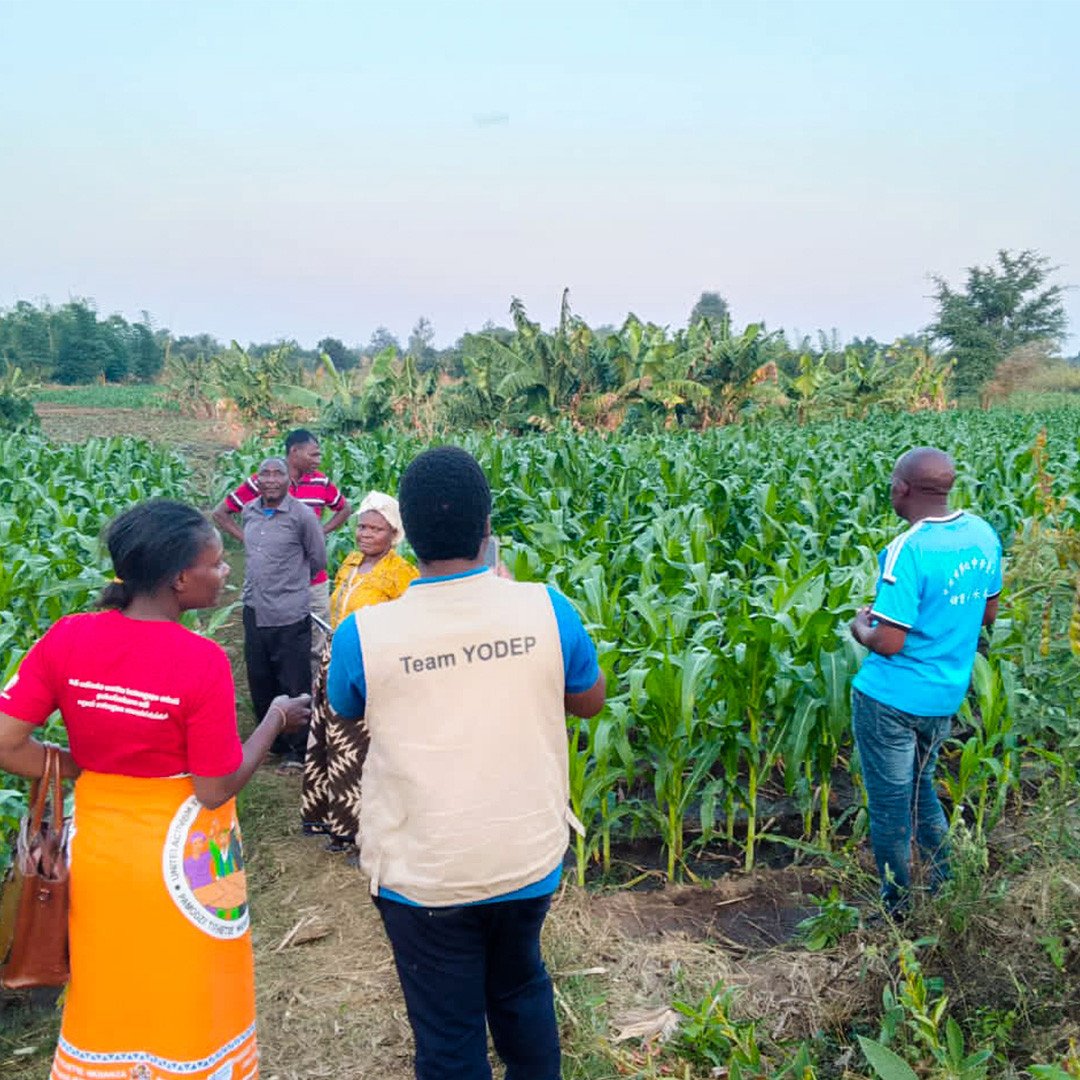
Traditional Authority Mwambo, located in the low-lying eastern part of Zomba District Bordering Lake Chilwa, is prone to natural disasters such as droughts and flooding of rivers like Likangala, Thondwe, Domasi, and Lake Chilwa. These disasters result in the destruction of infrastructure (roads, houses, schools, hospitals) and adversely impact socio-economic life, including agriculture, food security, education, and loss of life and property. TA Mwambo comprises eight Group Village Heads (GVHs): Mbalu, Kimu, Chaweza, Mangwele, Magoli, and Chizalo.
GVH Kimu is one of the hardest-hit villages by these natural disasters. In response, the Localisation Project partnered with GVH Kimu to work on disaster preparedness, response, and recovery. This led to the establishment of the Village Disaster Risk Management Committee (VDRMC) as a leading structure for disaster management.
Youth for development and productivity (YODEP) together with Zomba district council has build capacity to VDRM. These include training in Early warning and resource mobilization. These training led to the development of Early preparedness plan (EPP) by Khimu VDRMC.
Through EEP, Khimu VDRMC spearheaded several key initiatives, including resource mobilization, soil and environmental conservation, modern agricultural practices, early warning preparedness, and disaster-related communication and data management.
Due to recent droughts, most households in GVH Kimu faced food insecurity. The VDRMC mobilized community members for irrigation farming as a mitigation strategy. Approximately 2 hectares of land were identified for irrigation farming, where maize, vegetables, banana plantains, and sweet potatoes were grown. Around 30 farmers participated in the initiative, expecting to yield 7 tons of maize, benefiting 200 households.
The Committee led a land and soil conservation initiative through tree planting in strategic areas to conserve soil, maintain fertility, and manage run-off to minimize soil erosion. The VDRMC established and managed five woodlots and a tree nursery in each village containing 3,000 seedlings, expected to be transplanted onto riverbanks and other strategic areas. In the recent rainy season, 5,000 tree seedlings were distributed to households for planting in their gardens.
In her testimony, Rhoda Sewere VDRMC chairperson said "After suffering from deaths, injuries, and loss of property due to floods for many years, we resolved to set up an irrigation scheme to grow various crops. This initiative helps us adapt to and mitigate poverty and hunger caused by climate change. We are now growing maize and vegetables through irrigation with excellent results, making us self-reliant compared to the past when we depended on handouts and relief support."
Frank Kupizira a member of VDRMC also conqured with the chairperson by saiying apart from producing our food, they are involved in environmental conservation by planting trees. They established a tree nursery to ensure every household is surrounded by trees as a control measure against strong winds that could damage houses in the future."
Despite their success, the VDRMC members identified challenges, including a lack of expertise in developing their irrigation scheme and communal forests into potential wealth creation hubs. They expressed a need for additional skills to contribute effectively to the Malawi 2063 food and financial security goals.
The Kimu VDRMC, established in 2021 with 15 members (8 males and 7 females), has demonstrated resilience and community empowerment through their proactive initiatives. Their efforts in disaster preparedness, irrigation farming, and environmental conservation have significantly improved food security and self-reliance, setting a positive example for other communities facing similar challenges.